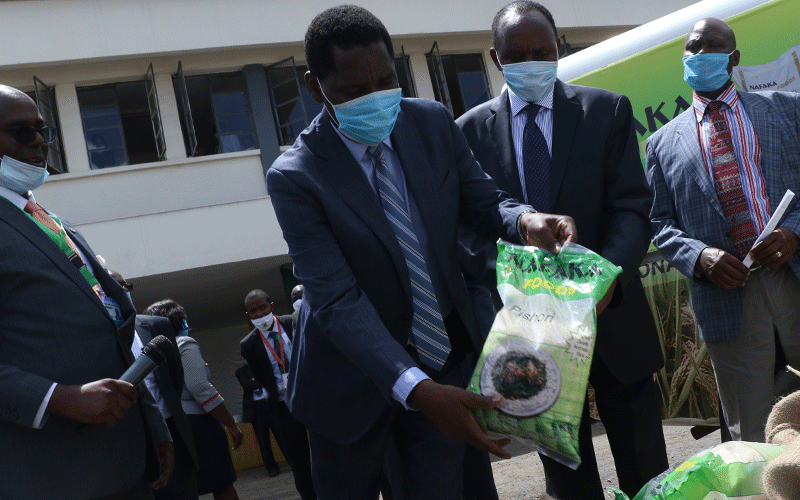State unveils reforms to boost maize production

The Ministry of Agriculture has established warehouse receipt system council in a move geared to weed out cartels that have been controlling the multi-billion-shilling maize sub-sector.
As part of new reforms announced yesterday by Agriculture Cabinet Secretary Peter Munya, the council will help in enhancing maize trade and minimise increasing post-harvest losses in the sub-sector.
“Government’s intention is to end unethical business behaviour by lobby groups and prominent individual business actors and ensure farmers as the major producers hold the bigger part of the stick.
The reforms seek to enhance efficient management of the food value chain,” he said.
Enough food
Even though he said the country does not produce enough food mainly maize to feed the population, there is a lot of immoral practices perpetuated by various stakeholders leading to endless suffering of farmers.
Establishment of the council now ends the role government has been undertaking of buying, selling and setting maize prices.
Instead of the previous scenario of government controlled the entire value chain, going forward the market dynamics –demand and supply will be the key drivers of the trade.
“Under the strategy, producers will be allowed to delay the sale of their maize or any other produce until prices are favourable.
In the meantime, they will be facilitated to borrow against receipts issued for goods in designated warehouses,” said Munya.
Munya made the remarks at the National Cereals and Produce Board (NCPB) head offices when he announced radical reforms on restructuring of the national food reserve and food storage management.
Implementation of the reforms is likely to have an impact on officers serving at the NCPB, as the government plans to undertake institutional reforms to eliminate overlapping roles, conflicts between different government agencies and better respond to changing food demand.
Munya said a technical working committee has been formed to co-ordinate prompt and focused implementation of the reforms and to ensure systems are in place to receive produce by October 2020.
“I will in the next few days take measures to invigorate the NCPB board and to inject the required expertise for oversighting the revamped functions board.
I direct the technical committee and NPCP board to immediately undertake capacity and suitability vetting of all the serving officers,” he added.
Radical reforms
Announcing radical reforms the government will undertake in the sub-sector, Munya said the board would comprise members picked from outside the government and various line ministries.
He said Warehouse Receipt System (WRS) is an open trading platform that links buyers and sellers, and modelled along the stock exchange.
“Importantly, the Warehouse Receipt System will remove the logistics burden and facilitate producers and traders to access agricultural credit against the deposit certificate,” said Munya.
The new acting CEO is Samuel Ogolla, a former Tea Directorate interim head.
“The council is parastatal body which shall be mandated, among other things to establish, maintain and develop a warehouse receipt system for agricultural commodities in Kenya, establish a central registry for the management of warehouse receipt transactions and develop, and implement an efficient commodity grading and weighing system that ensures quantity and quality assurance,” he said.
The council will further be charged with the responsibility of licensing annual warehouse operators.
Key reforms the government is currently pursuing include setting up of a robust warehouse receipting system, a commercial NCPB trading, formalisation of a food balance sheet committee and renaming SFR as a National Food Reserve (NFR) division of NCPB.
The food balance sheet committee will be experts drawn from government, private sector and Kenya National Bureau of Statistics and think tank organisations.








